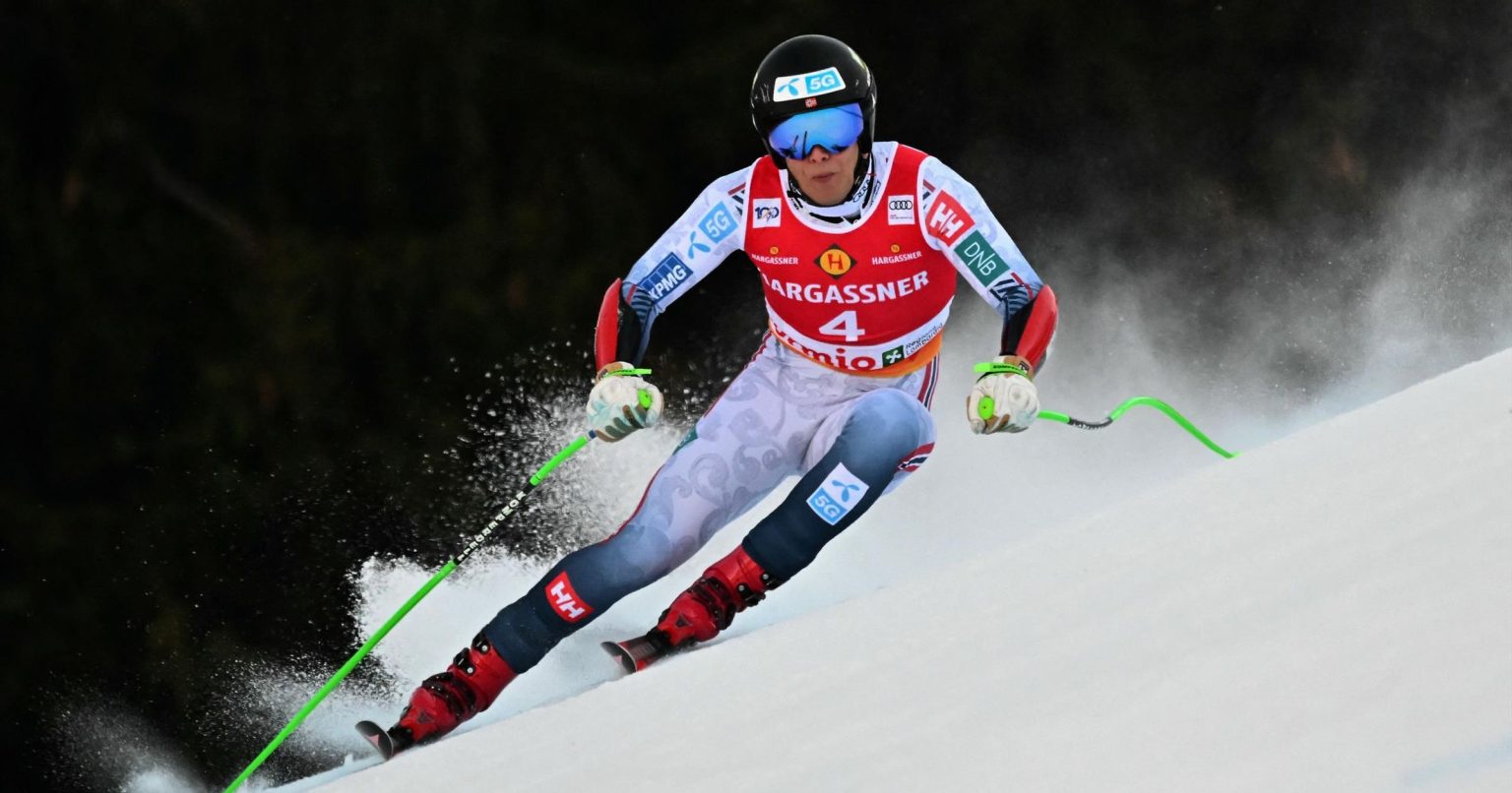Fredrik Moller, a 24-year-old Norwegian skier, etched his name into the annals of alpine skiing history with a stunning victory in the super-G event at Bormio, Italy, claiming his first World Cup podium and win in a single, breathtaking performance. Moller’s triumph was built on a mature and calculated descent down the Stelvio slope, a notoriously challenging course known for its steep gradients, icy patches, and demanding terrain. He navigated the treacherous course with precision and aggression, demonstrating a remarkable blend of technical skill and tactical awareness that belied his relatively young age on the World Cup circuit. His final time edged out seasoned veteran Vincent Kriechmayr by a mere two-tenths of a second, a testament to the tight margins that often separate victory from defeat in the high-stakes world of alpine ski racing.
Moller’s victory was not merely a personal milestone; it also resonated with the broader narrative of Norwegian ski racing. Norway has long been a powerhouse in winter sports, boasting a rich tradition of success in disciplines like cross-country skiing and biathlon. However, in recent years, a new generation of alpine skiers has emerged, challenging the established order and injecting fresh energy into the Norwegian ski racing scene. Moller’s win signifies the coming-of-age of this new wave of talent, showcasing their potential to compete and conquer at the highest levels of the sport. His success at Bormio serves as an inspiration to aspiring young skiers in Norway and around the world, demonstrating that with dedication, perseverance, and a touch of audaciousness, even the seemingly insurmountable peaks of athletic achievement can be scaled.
The Bormio super-G race itself was a spectacle of speed, skill, and nerve, unfolding against the dramatic backdrop of the Italian Alps. The Stelvio course, with its plunging descents and unforgiving turns, demanded the utmost from the competitors. Each racer faced the daunting task of finding the perfect balance between aggressive speed and controlled precision, a challenge that often separated the contenders from the pretenders. The icy conditions added another layer of complexity, requiring pinpoint accuracy and unwavering focus to maintain grip and avoid costly mistakes. The slightest slip, the smallest hesitation, could be the difference between a podium finish and a disappointing outcome.
Moller’s performance on this demanding course was a masterclass in tactical execution. He displayed a remarkable ability to read the terrain, adapting his line and technique to the specific challenges presented by each section of the course. He maintained an aggressive pace without sacrificing control, carving smooth, powerful turns that maximized his speed while minimizing risk. His composure under pressure was particularly noteworthy; he remained calm and focused throughout his run, seemingly unfazed by the high stakes and the demanding conditions. This mental fortitude, combined with his technical prowess, ultimately proved to be the winning formula.
Vincent Kriechmayr, the seasoned Austrian veteran, pushed Moller to the limit, delivering a powerful performance that showcased his own considerable skill and experience. Kriechmayr, known for his attacking style and his ability to excel on challenging courses, put down a blistering run that threatened to steal the victory from Moller’s grasp. His performance served as a reminder of the fierce competition that exists at the top echelons of alpine ski racing, where even the smallest margins can determine the outcome. Despite finishing just fractions of a second behind Moller, Kriechmayr’s performance was a testament to his enduring competitiveness and his status as one of the sport’s elite racers.
Moller’s victory at Bormio marks a significant turning point in his young career. It is a validation of his years of dedicated training and unwavering commitment to the sport. It is a moment of triumph that he will undoubtedly cherish, a memory etched in the snow and ice of the Italian Alps. But it is also a moment that signifies the beginning of a new chapter, a chapter filled with the promise of future victories and the potential to become one of the defining figures in the world of alpine ski racing. His performance at Bormio has sent a clear message to the ski racing world: Fredrik Moller is a force to be reckoned with, a rising star with the talent and determination to reach the pinnacle of the sport. His journey has just begun, and the world of ski racing eagerly awaits the next chapter in his unfolding story.

